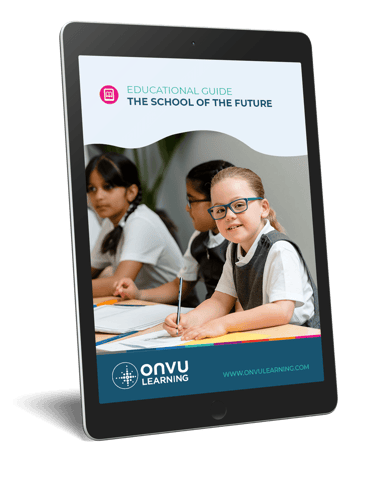- Blogs
- 2 Minute Read


In any school there’s an awful lot of teaching happening at any one time – and it goes without saying that the quality of it needs to be as high as possible. So, there’s an obvious reason for school leaders to want to see what is happening around the school, including micro-management, to improve it.
Some SLT think that more formal observation is the answer – at one time this was limited to 3 hours per year, but the limit was removed by legislation in 20121, in practice reflecting the reality in many schools. Other schools have chosen ‘learning walks’ where multiple classrooms are observed in a short time, book scrutinies looking for written evidence of learning, or asking teachers to provide detailed lesson plans in advance. These schools usually also have extensive formal policies and guidance on every aspect of teaching.
However, research has begun to question whether these micro-managing actions help improve teaching. Evidence has grown that formal lesson observations can’t accurately judge teacher quality2. And the impact of these well-meant policies can be hugely negative on other aspects of school life. Teachers, such as the one writing in the Guardian here3, want to teach well. But they also fear falling foul of micro-managers and spend too long meeting ‘micro-demands’. And this means that they are more likely to become disillusioned and in extreme cases suffer stress4 and leave teaching5, at a time of huge shortage6.
So, what can school leaders do? What if you could replace artificial observations with real help for teachers with the behaviour problems that don’t appear when a member of SLT is in the room? What if teachers could see what and when students were actually writing in a lesson and seek expert help to improve it, rather than wait for someone to guess what happened from a book scrutiny? And what if teachers were empowered to identify their learning needs rather than being caught out on a long tick-list of actions? What if this helped them get their passion for teaching back?
These are among the impacts we’ve seen when rolling out our video observation system to schools across the UK.
At The Hereford Academy, Maths teacher Claire Tunna realised her initial assumption that students had understood a new concept was inaccurate. Although the pupils indicated they had ‘got it’, she noticed retrospectively that many were slow to start the next activity due to their confusion. After looking at video footage she was able to adapt subsequent planning, stating ‘I’d have missed this delay without video playback’.
Orwell Park School in Suffolk introduced ONVU Learning to give development back to teachers and has built up a list of volunteers who want to use the system. Teacher David Horton said ‘It’s easy to become jaded with teaching. We’re now on the road to achieving the best whole teaching team who are reconnecting with their teaching and excited by the journey’.
And the great news for SLT is that rather than spending time micro-managing, you can now spend time on development, coaching and the altogether happier aspects of people management! At the Learning for Life Partnership in Cheshire, Executive Head Dan Thomas was able to revitalise professional development and remove intrusive observations, commenting, ‘[ONVU Learning] gives the ownership of professional development to the teachers so they can reflect and develop their skills’.
References:
1 https://www.atl.org.uk/advice-and-resources/rights-and-conditions/observations
2 https://www.tes.com/news/school-news/breaking-views/lesson-observations-are-barely-more-accurate-a-lucky-guess
3 https://www.theguardian.com/teacher-network/2018/jan/13/secret-teacher-micro-management-changing-schools-ofsted
4 https://www.theguardian.com/education/2018/jan/11/epidemic-of-stress-blamed-for-3750-teachers-on-longterm-sick-leave
5 https://collectivehub.com/2017/07/why-people-who-are-micromanaged-eventually-quit/ 6 https://www.tes.com/news/school-news/recruitment-crisis

The School of the Future Guide is aimed at helping school leaders and teachers make informed choices when designing the learning environments of the future using existing and upcoming technologies, as they seek to prepare children for the rest of the 21st century – the result is a more efficient and competitive school.
KEEP IN TOUCH WITH ONVU LEARNING AND RECEIVE THE LATEST NEWS ON EDTECH, LESSON OBSERVATION, AND TEACHER TRAINING AND DEVELOPMENT.